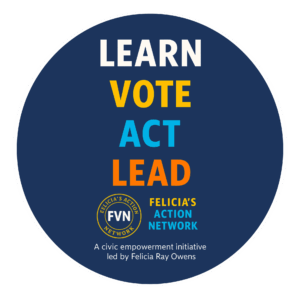
Kevin Roy and Aldrich Potgieter shoot Rocket Classic-record 62s to share 1st-round lead
June 26, 2025
Philadelphia’s schools accused of failing to properly inspect asbestos in buildings
June 26, 2025SAN ANTONIO – For eight years, one horrific night in college shaped how Summer Willis defined herself.
“When I was a sophomore at the University of Texas, I went to a fraternity party and someone I considered a friend handed me a drink, and my world just started blurring. When I woke up, I was naked, and I was confused,” said Willis, in part. “I asked him what happened, and while he was laughing, he told me I kept on saying no. He told me that I tried to push him off. A couple of days later, they wrote about it like a trophy announcement in the fraternity newsletter.”
While it was clear to her what happened, the law in Texas said otherwise.
“Because one person handed me a drink that I voluntarily took and another person raped me, it didn’t count,” Willis said.
Willis’ rape case was one of many loopholes within the loose definition of consent.
“And these loopholes are why prosecutors have to tell survivors, ‘We can’t take your case,” Willis said.
That answer was unacceptable to her.
“To be told that the thing that nearly broke me, that took years of my life away, didn’t count, it ignited a new flame in my chest,” Willis said.
Willis used her husband and son’s love to climb out of her inner shadows and began doing anything she could to bring attention to the issue of consent.
Willis ran 29 marathons and crawled a half-marathon, symbolizing her recovery journey.
“I shared my story for the first time, and I began to meet so many survivors who had the same story as me,” Willis said. “And I really started to realize the scope of the issue.”
What happened to Willis got the attention of state lawmakers, who wrote the Summer Willis Act.
The act strictly defines consent by listing what specific situations are considered assault, not consent.
Summer Willis Act examples of situations without consent:
- there’s a show of physical force or coercion
- someone knows the other person is unconscious
- someone knows or should reasonably know that the other person cannot consent because of intoxication or impairment
- someone knows a person cannot consent due to their “mental disease or defect”
-
the other person has withdrawn consent to the act, but the act continues
The law then lists specifics for types of people such as:
-
public servants and politicians
-
medical professionals
-
coaches
-
educators
-
caregivers
“For months and months I fought with my team of representatives and (state) Senators and survivors who came forward, and yeah, we came together and we changed the law,” Willis said.
Willis said her perpetrator was never held accountable, but others now will be.
“It means everything,” she said. “I get to see justice happen by telling all of these other women and men and children that what happened to them counts now, and if they choose to, they have a shot at justice.”
The accomplishment has finally reframed the way she defines herself.
“I got to see that survivors actually can have a happy ending,” Willis said.
Willis and state lawmakers said the Summer Willis Act is now the strongest law of its kind in the United States.
“I’m so proud of Texas for passing this because I went to New York and fought for this last week, and it failed there,” Willis said.
Other survivors across the nation have taken notice and are asking Willis to help them create similar laws in those states.
Willis has turned her advocacy and action into a nonprofit called Strength Through Strides.
The Strength Through Strides website shows statistics from RAINN, the nation’s largest anti-sexual violence organization:
-
for every six women, one is raped
-
one in four college women is sexually assaulted
-
fewer than 20% of rapes are ever reported
-
for every 100 rapes, 99 will never see justice
The sobering numbers show the depth of this issue, which is why Willis is trying to inspire as many advocates as possible to join her cause.
Anyone who has been sexually assaulted or wants information about resources can contact the National Sexual Assault Hotline:
– call (800) 656-HOPE or (4673)
– text HOPE to 64673
– chat online through this site
The San Antonio Rape Crisis Center can be reached at (210) 349-7273. It is located at
Copyright 2025 by KSAT – All rights reserved.
Great Job Courtney Friedman, Luis Cienfuegos, Adam Barraza & the Team @ KSAT San Antonio Source link for sharing this story.








